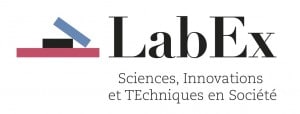Abstract
This article describes an original approach to surveying and analyzing the existing body of scientific research on (1) the effects of various forms of reorganization in agriculture, forestry, and spatial planning on land-use change (LUC) and (2) the impacts of that LUC on the environment. Our approach consisted of four principal steps: (i) identification of references using a bibliographic search process; (ii) description of the references’ key features (publication date, journal of publication, etc.); (iii) textual analysis of the articles and identification of thematic sub-groups; (iv) systematic examination of a subset of the corpus using an reading grid followed by an analysis of the results. Our findings show that the majority of publications relating to the environmental impacts of LUC were published after 2000, and amount to a corpus of more than 5700 articles. The scientific journals involved are diverse in nature, with some being general in focus and others more specialized and technical. A lexical analysis performed using the digital platform CorTexT, developed by IFRIS (Institute for Research and Innovation in Society, a research consortium based in the Paris region. http://ifris.org/), enabled us to identify several themes within this corpus, in terms of both the types of reorganizations considered and the types of impacts examined. A more detailed analysis was conducted on a subset of articles dealing with the production of non-food biomass. The results show that, within this sub-group, the environmental impacts most often studied are those relating to climate, soil, and water. Our approach demonstrates the utility of textual analysis as a partially automated method for identifying, in broad outline, the topics addressed within a large-scale corpus. As with a search by keywords, however, this type of textual analysis cannot guarantee that all the articles classed within a category genuinely address the corresponding topic. Among those articles assigned by CorTexT to the sub-group on non-food biomass (1785 articles), the majority proved not relevant to our chosen topic, and only 241 articles were ultimately selected. This selection phase could not be fully automated and required a close reading of titles, abstracts, and often main texts by human experts. The use of precise criteria for selection and a formal reading grid are helpful in limiting the risk of bias and ensuring a level of transparence in the analytical process. Implementation of such an approach is time-consumptive, however, and requires considerable human effort.
See all documents refering Cortext Manager






